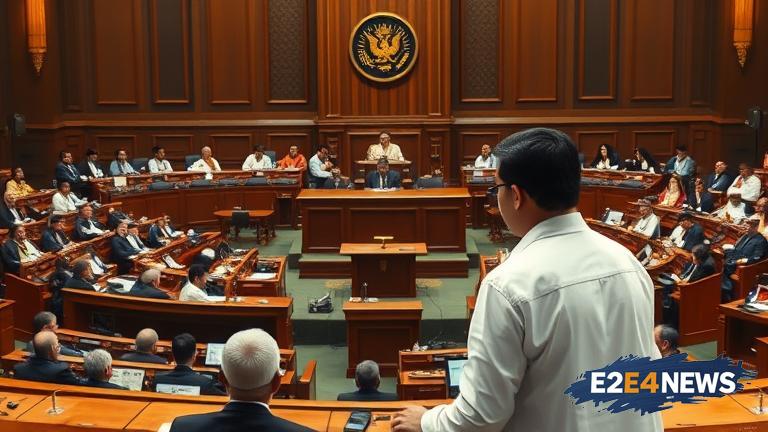The Malaysian Parliament has rejected a bid by Perikatan to refer the Prime Minister to a parliamentary committee over the Batu Puteh issue. The motion, which was tabled by Perikatan, sought to refer the Prime Minister to the Committee of Privileges for allegedly misleading the House over the country’s claim to the disputed island. However, the motion was rejected by the Parliament after a heated debate. The Batu Puteh issue has been a longstanding dispute between Malaysia and Singapore, with both countries claiming sovereignty over the island. The dispute has been ongoing for decades, with numerous attempts at negotiation and mediation. The Perikatan coalition has been critical of the government’s handling of the issue, accusing them of failing to protect Malaysia’s interests. The Prime Minister has denied any wrongdoing, stating that the government has always acted in the best interests of the country. The rejection of the motion is seen as a significant blow to Perikatan, which has been trying to capitalize on the issue to gain political mileage. The opposition coalition has vowed to continue pushing for answers on the Batu Puteh issue, despite the setback. The government has maintained that it will continue to engage with Singapore to find a resolution to the dispute. The Batu Puteh issue has significant implications for Malaysia’s foreign policy and national security. The island is strategically located at the entrance of the Singapore Strait, making it a crucial location for trade and navigation. The dispute has also raised questions about the country’s ability to protect its territorial integrity. The Perikatan coalition has accused the government of being weak on the issue, allowing Singapore to gain the upper hand. However, the government has countered that it has always taken a firm stance on the issue, while also seeking to maintain good relations with Singapore. The rejection of the motion has sparked a heated debate about the role of the opposition in holding the government accountable. Some have argued that the opposition is simply trying to score political points, while others see it as a legitimate attempt to seek answers on a critical issue. The Batu Puteh issue is likely to continue to be a major point of contention in Malaysian politics, with both sides dug in and refusing to back down. The international community is also watching the situation closely, with some expressing concern about the potential implications for regional stability. The Malaysian government has sought to reassure its neighbors that it is committed to finding a peaceful resolution to the dispute. Despite the challenges, there are still hopes that a resolution can be found, with some suggesting that a compromise could be reached through negotiations. The Perikatan coalition has vowed to continue pushing for a more aggressive approach to the issue, while the government has maintained that it will continue to prioritize diplomacy and dialogue. As the situation continues to unfold, it remains to be seen how the Batu Puteh issue will be resolved, and what implications it will have for Malaysia’s relations with its neighbors. The country’s foreign policy and national security are likely to be significantly impacted by the outcome of the dispute. The Malaysian Parliament’s rejection of the motion is seen as a significant development in the ongoing saga, and it remains to be seen how the situation will evolve in the coming weeks and months. The international community will be watching closely, as the dispute has significant implications for regional stability and security. The Malaysian government has a difficult task ahead, as it seeks to balance its relations with Singapore while also protecting the country’s interests. The Perikatan coalition will likely continue to push for a more aggressive approach, while the government will seek to maintain a firm but diplomatic stance. The Batu Puteh issue is a complex and sensitive topic, and it will require careful handling to find a resolution that satisfies all parties involved.
